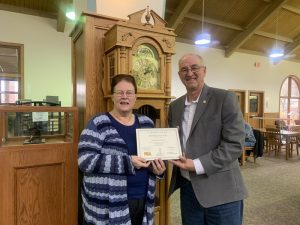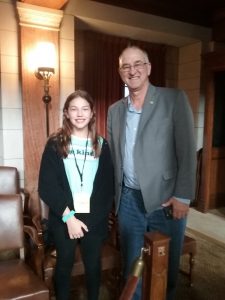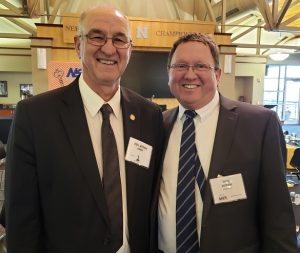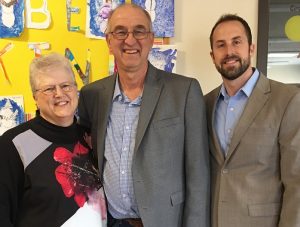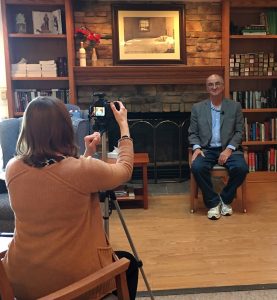This week we began debate on a long awaited bill dealing with property taxes and school funding. The two issues are tied together since the state does not collect property tax; only counties, schools and other local entities collect property tax. The state only collects sales tax and income tax. So any bill that reduces the amount schools can bring in from property tax, must also address how the state will supplement school funding.
The property tax bill, LB 974, as introduced by the Revenue Committee has a couple of aspects that I like. One is adjusting the valuation of agricultural land from 75% to 65% to 55% over the course of three years. This change would only apply to the valuation for the purpose of school funding, and not the county or other local subdivisions. Residential valuations would drop to about 87% by the third year, for the same purpose, school funding only. I like the idea that we have the opportunity to do something that hasn’t been addressed for decades, and that is to change how valuations are used for taxing purposes.
Nearly every school in District 30 has contacted me with their concerns about how LB 974 will affect them. The premise of the bill is that foundation aid will replace revenue lost by the schools with the lower ag land and residential valuations. The question is whether state revenue streams and revenue growth will be sufficient and grow into future years. If it does not, how will the state fund their obligation; and how will tax rates and bases be adjusted if they become locked in under the provisions of LB 974? Another area of concern is the use of the Consumer Price Index (CPI) in the bill, which correlates to the overall economy but has less relationship to the main expense incurred by school districts – personnel and wages. I agree that other economic indices might be a better fit.
The proponents of LB 974 support it for the property tax relief it is intended to provide. Opponents, mainly school systems, are left wondering how the funding shifts in the bill will affect their budgets. The Legislature’s Fiscal Office calculated the projected effect on each school and the state funding required. Their report showed 63 schools will be short about $56 million in funding by the end of three years. When you look at those numbers, you understand the school’s concerns.
As LB 974 stands right now, after three hours of debate and no consensus, the sponsors must show the Speaker they have at least 33 votes to continue debate. A compromise is needed in order to do this. Property taxes have become a significant expense for many families, farmers and businesses. As I visit with constituents in District 30 and other areas of the state, it is the number one concern they have. Property taxes are affecting our economic growth, especially agriculture. We need property tax relief. I am generally optimistic but we are not there yet. The issue is on hold until more agreement can be developed.
An important bill that did pass through to the next round of debate was LB 996, Sen. Tom Brandt’s priority bill. This bill will enable the Public Service Commission to accurately report broadband coverage in Nebraska in order to obtain some federal grant dollars to expand service. In what turned out to be a beneficial coincidence, the public Wi-Fi went down in the Capitol recently, and many senators were unable to access things on line. This was a good demonstration of what it is like in many rural areas of Nebraska, all the time. The importance of good broadband for economic development and education was discussed as well. I would also point out that I have talked with residents in District 30 who live within about ten miles of Lincoln and do not have good broadband or cell phone coverage. So this is not strictly a “rural” issue as most think of it, and the state could benefit from those federal grant monies. LB 996 passed first round debate on a 37-0-11 vote.
My office has received many calls and emails about a couple of “hot button” issues – motor cycle helmets and fire arms. Because of the short session and other big issues, bills that deal with these matters have a very small chance of making it to the floor for debate because they have not been designated as a priority bill (each senator can designate a priority bill and then the Speaker puts that bill on the agenda for debate ahead of non-prioritized bills.) LB 378 would repeal the motorcycle helmet requirement, but Sen. Ben Hansen did not make it his priority; he did indicate that he will introduce the measure again next year. LB 58, known as the Red Flag Law, was introduced by Sen. Morfeld. I do not support this bill – but again, it is not a priority bill so is not likely to be debated. LB 816 had a public hearing late in the week; and also has amendments to make it more neutral. However, it remains to be seen if that bill even comes out of committee. Again, it would have to be made a priority to get to first round debate, if the committee advances it.
As my own priority bill, I have adopted LB 1014. This bill was brought to the Banking and Insurance Committee. It would allow organizations, such as the Land O Lakes Cooperative, to offer health insurance to their farmer members. I will expand on the merits of this legislation next week.
In the meantime, please continue to contact me with any questions or concerns. Your opinions and insights are valuable to me as I listen to the debate on bills before the Legislature. mdorn@leg.ne.gov 402-471-2620

